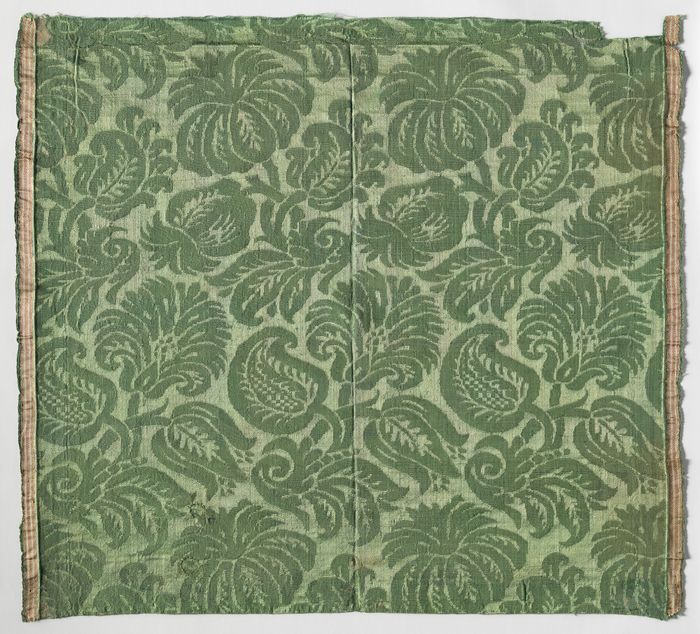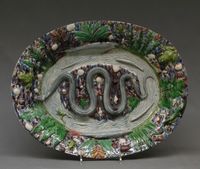
Green Silk Damask
An item at Metropolitan Museum of Art
Like the nearby crimson example, this is a damask. Its subtle pattern was achieved by contrasting the shiny warp face with the matte weft face of the same weave, a technique that European weavers learned by studying imported Chinese silks. The motif’s midsize scale renders this design versatile enough to be used for furnishings, wall coverings, or dress fabric. This green silk damask was displayed in European Textiles and Costume Figures, on view at the Staten Island Institute of Arts and Sciences (visible at center bottom in the photograph of 1938), and at Walton High School (visible at right in the photograph of February 9, 1939). [Elizabeth Cleland, 2020]
European Sculpture and Decorative Arts
An exhibit at Metropolitan Museum of Art
The fifty thousand objects in the Museum's comprehensive and historically important collection of European sculpture and decorative arts reflect the development of a number of art forms in Western European countries from the early fifteenth through the early twentieth century. The holdings include sculpture in many sizes and media, woodwork and furniture, ceramics and glass, metalwork and jewelry, horological and mathematical instruments, and tapestries and textiles. Ceramics made in Asia for export to European markets and sculpture and decorative arts produced in Latin America during this period are also included among these works.




